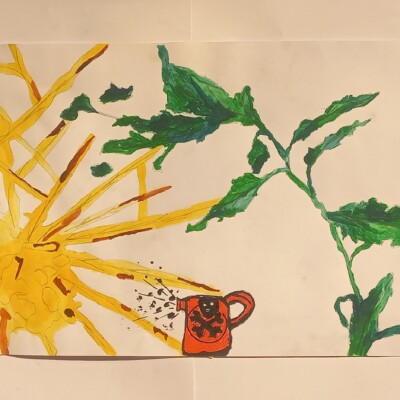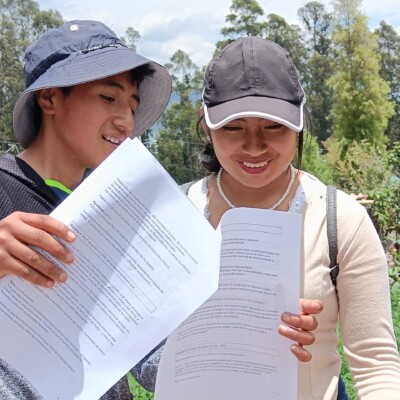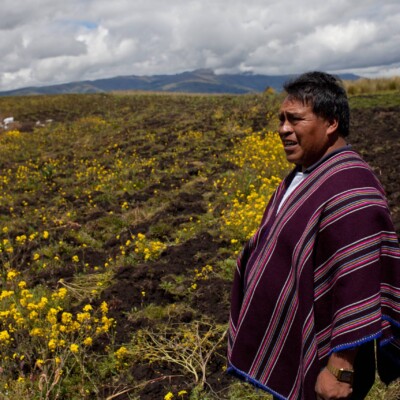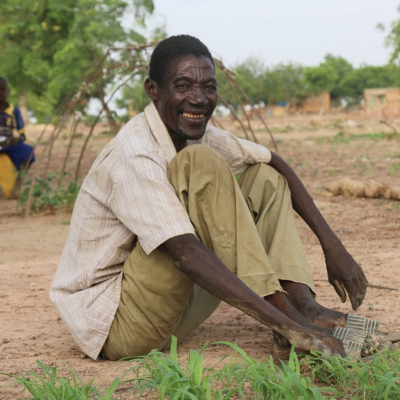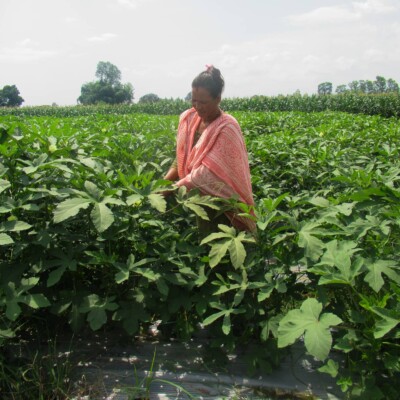BLOG
Voices from the field
Filter by topic, region or language:
Agroecology Americas Español Groundswell News South Asia Systemic Change Traditional Farming Practices West Africa Women in Agriculture Youth in Agriculture
Ecuadorian Youth Draw a Future Free of Chemicals and Rooted in Nature
This year, youth storytellers from our local partner EkoRural in Ecuador stepped forward with thoughtful drawings that inspire us to reconnect with the earth. Their art calls out harmful agricultural practices, depicts the importance of soil health, and honors the mountains that nestle their communities.
Young Leaders Shaping the Future of Food Systems Through Film: Looking Back on the 2024 Field to Film Festival
Each year, the Field to Film Festival marks a milestone for our Youth Storyteller Program, a unique initiative where young leaders learn to capture and share the stories of their families and the agroecological solutions transforming their communities. This year, through bold and creative storytelling, they ignited movements of hope and change across diverse corners of the globe. Stories that resonate across borders In 2024, over 50 young storytellers brought their communities’ stories from field to film, producing 11 short films that highlight the resilience and innovation of communities in B …
Indigenous Farming Systems in Ecuador: Lessons for Adapting to Climate Change
In this blog post: The evolution of traditional Andean farming in Ecuador: the role of Chakras Agrarian reforms and their impact on indigenous farming communities in Ecuador Reviving indigenous farming practices with EkoRural Indigenous farming as a blueprint for building resilience to climate change “In each household in our community, we have the native seeds that we have saved from our ancestors,” says Elena Tenelema as she walks across her farm. “Caring for our Pachamama (Mother Earth) is the most important thing. If we contaminate it with chemicals, it will be the end of our land, and we …
How Agroecological Farming Transformed Emmanuel’s Field in Burkina Faso
We recently met one exceptional farmer whose story speaks to the heart of our work: Wango Emmanuel, from Bonessin, Burkina Faso. After spending several years living and working in Côte d’Ivoire, Emmanuel returned to his native village amid a grave political crisis. His only means of feeding his family was a small plot of land he inherited from his father. But the soil had hardened like cement, rendered unproductive by decades of extractive farming practices common in the area. As soil fertility declined, farmers turned to expensive chemical fertilizers and inputs promoted by the government an …
Senderos de esperanza en el Corredor Seco: agroecología y resiliencia desde las voces de las comunidades en el CADF 2024.
El Corredor Seco centroamericano se extiende desde México, hasta Panamá, abarcando vastas áreas de Guatemala, El Salvador, Honduras, Nicaragua y parte de Costa Rica. Con una longitud de 1.600 kilómetros y un ancho que varía entre 100 y 400 kilómetros, este territorio es el hogar del 90% de la población de Centroamérica, según la Organización de las Naciones Unidas para la Alimentación y la Agricultura (FAO). Sin embargo, este corredor, vital para la producción agrícola y la sostenibilidad de la región, enfrenta una crisis climática y social que amenaza la vida de millones de personas. Azotado …
Four Smallholder Women Farmers at the Forefront of Agroecological Farming
Almost half of the world’s agricultural workers are women. In the Global South, women produce 60 to 80% of the food that sustains their communities—yet they own less than 20% of the land. Despite having limited access to resources and shouldering significant family responsibilities, these women continue to feed the world. They play a crucial role in restoring ecosystems, addressing climate change, and building food security from the ground up. As they nurture land and life, there is much we can learn from their unique journeys. Today, we’re honored to share the stories of four remarkable women …

